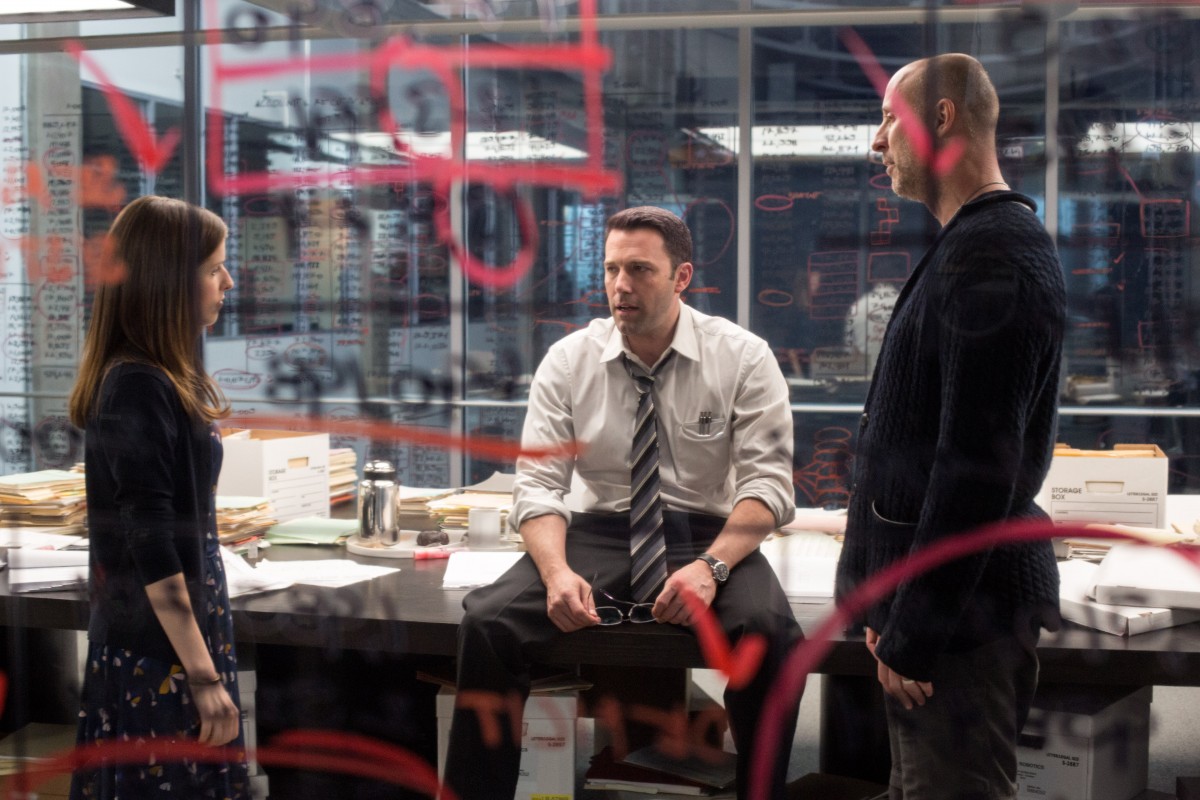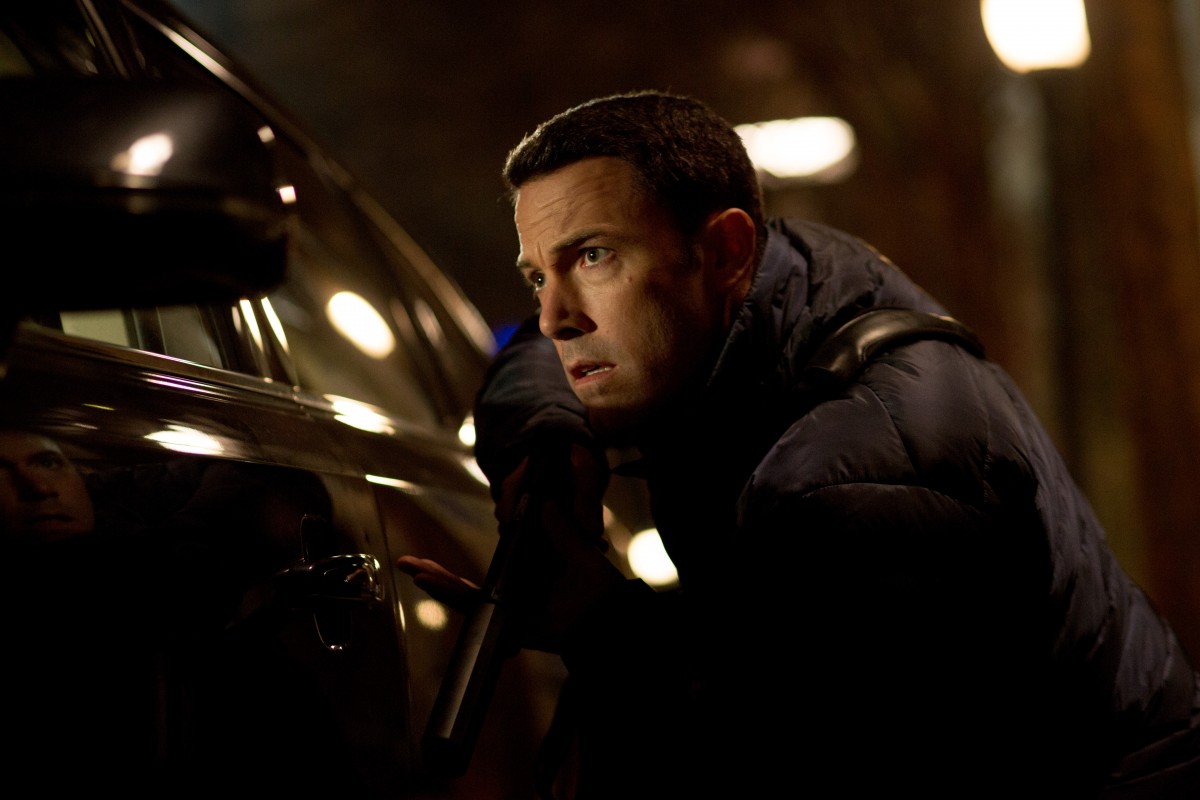How Ben Affleck Made The Accountant Director’s Job Easy

Photo by Chuck Zlotnick
As an Academy Award-winning director, Ben Affleck knows how hard it can be working with A-list actors on a high-profile movie. That’s why he likes to make life easy for the people behind the scenes. Well, that’s according to Gavin O’Connor, who got a chance to direct the Tom Brady-loving star in the new action thriller The Accountant. In the film, Affleck plays a math whiz with autism who overcomes the disorder to become a small-town CPA. Oh, and he happens to be a highly-trained killer who deals with some of the world’s most dangerous criminals, so don’t expect him to spend all of his time solving algebra problems like his pal Matt Damon in Good Will Hunting. Ahead, O’Connor opens up about working with Affleck, the process behind crafting a character with autism, and why it’s ‘f–king great’ to be different.
Did you feel any pressure working with such a star-studded cast, especially with someone like Ben Affleck, who’s also a decorated director?
I guess I would feel pressure if Ben made me feel pressure because he’s like an Academy Award-winning director, but he never did that at all. We had a conversation right at the gate about like, I’m directing the movie, he’s acting in the movie, and that’s going to be our relationship. And that’s what it was. What Ben brings to a movie as a director is that, because he’s walked in those shoes, he understands the job and the difficulty of the job. As an actor, he just brings a sort of attitude as the lead actor that can permeate the movie. He also understands his job as an actor is to help the director by showing up on time, knowing your lines, having a good attitude, all that stuff. If he’s directing a movie, he would be hiring actors that would do the same thing.
From Affleck to Jon Bernthal, the film features a lot of actors involved in the world of superheroes. Do you think Hollywood should focus more on characters who don’t wear capes and cowls, like The Accountant?
Maybe if the film is successful, what studios will look at is like, “Oh, we can create something original. It’s not based on a comic book or a graphic novel.” There is a tendency in Hollywood right now to really lean on material that was born in another medium and then it’s adapted. Hopefully, this can liberate us.

Photo by Chuck Zlotnick
Since he is Batman, though, how impressed were you with Affleck’s fight skills?
The thing that was important for Ben was that he had to do his own stunts, mostly. I wasn’t expecting him to crash through glass or fall out of a truck. He did it all. We had two tracks, the autism track and the fighting track. I knew I wanted the movie to be fun, that was like my mandate to myself. I wanted this to be fun.
What was your approach to crafting a character who’s dealing with autism?
There were two things that were really important to me. The first was we have to make sure we get this right, the accuracy of autism and the truth of the behavior and capturing someone on the spectrum in a way that was honest. One of the first things Ben and talked about was that you can’t just show up and play somebody with Asperger’s. It’s going to require a lot of work and research, so we spent a lot of time beyond reading books, listening to podcasts, and watching documentaries. We met with specialists and educators and had a lot of deep conversations with them. A woman named Laurie Stevens, she runs a school called Exceptional Minds in Los Angeles, and it’s a school for people who are on the spectrum. She gave us access to all these guys between 18 and 30 years old who are on the spectrum, different levels and functions. Ben and I went in like a blank canvas.
Was it important for you to show that people dealing with autism aren’t as limited as some may believe and that they can be badasses too?
One particular day we were in this classroom environment. There was a guy sitting in the back of the room, who never really said much. I kept looking at him because he was jacked. Finally I said to him, “What’s your name? Do you play any sports?” He said, “Yeah, I was a wrestler.” Then one of the teachers in the room said, “Tell him what kind of wrestler you are,” and he said, “I was a state champion wrestler.” I was like, “Really! How did you start wrestling?” He said, “My dad was a wrestler and he taught me how to wrestle.” And he was a stud. Ben and I looked at each other like, Ok, it doesn’t preclude being athletic or being anything else.
Is there a message you hope audiences take away from the film?
I’m always scared about saying what I want audiences to walk away with because, if you and I look at a painting, I’m going to get something different than you’re going to get. The one thing I would say is, because of the diversity issue going right on now, I think it’s a really good time to celebrate being different. That was a big thing for me in making the movie. I really wanted to hug the idea that different is f–king great. However you’re different as a human being, as a kid, don’t run from that.
The Accountant hits theaters October 14.
This interview has been edited and condensed.


